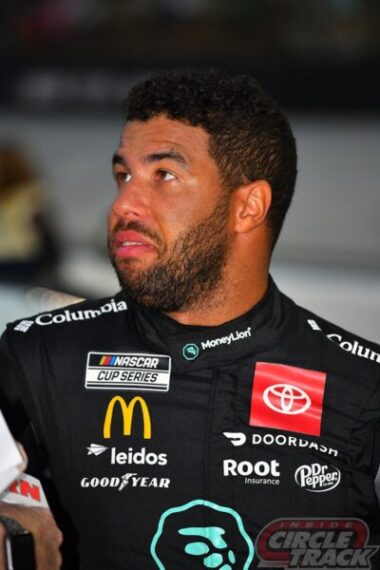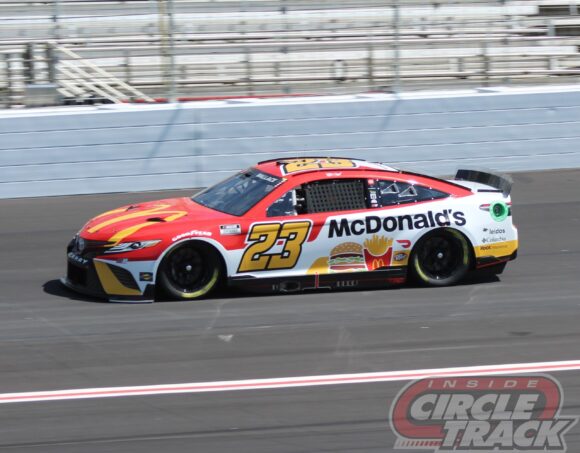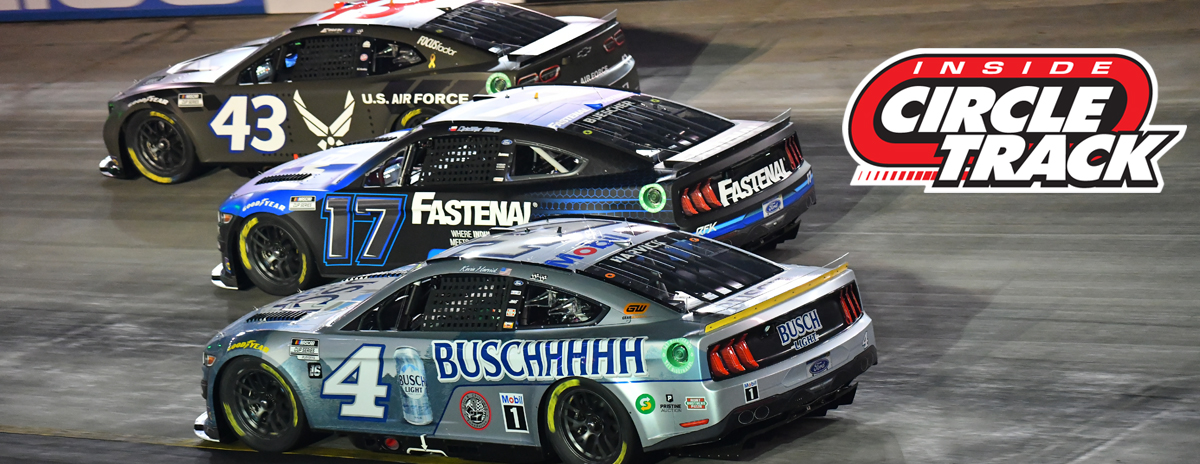
Bubba Wallace
Virtually everyone, whether a racing fan or not, has not only seen but commented on the crash and subsequent physical confrontation between Bubba Wallace and Kyle Larson during this past Sunday’s South Point 400 at the Las Vegas Motor Speedway. And those comments have gone the way one might expect of a highly publicized situation involving the stock car racing’s most prominent African-American driver.
On Tuesday, it was announced that Wallace had been suspended for the upcoming Dixie Vodka 400 at the Homestead-Miami Speedway because of his actions related to the incident with Larson.
In deciding to suspend Wallace, NASCAR had to consider a number of variables before announcing its punishment for the Toyota driver. That driver’s 23XI Racing team is co-owned by racer Denny Hamlin and basketball legend Michael Jordan.
The first tightrope the sanctioning body had to walk is that of the racial issue.
No one seems to want to mention this but here goes- There is an element of our society out there, many of whom care nothing about racing, who are simply looking to make a social commentary on anything that pertains to the race issue. They are not looking to solve any problems but they do want to stir the proverbial pot. Any penalty at all doled out by NASCAR was going to provoke these folks into a claim of racism. With that, there is always the potential that they might start a #CancelNASCAR hashtag on all the social media platforms to draw further attention.
While it’s easy to say that those running a major sport should not care about that sort of thing. However, we live in an era in which perception is far more important than reality. There’s more to this than just taking a stand on what’s right in the racing industry vs what’s right in the realm of social issues.
Sponsors investing millions of dollars with brands to not only promote but to protect want no part of controversy, particularly when accusations of injustice are involved. And perhaps above all, NASCAR must take into consideration what those who provide the money think.
On the other hand, there is an element of NASCAR’s fan base who will no doubt insist that the decision makers went too easy to avoid accusations of racism. No matter the severity of the penalty, it won’t be enough according to these people.
Once again, it’s easy to sit back and say that an organization as big as NASCAR should not consider these types of opinions when officiating incidents. But this is a sanctioning body that has done much over the past few decades to alienate long time fans and they no doubt would like to change that perception.
Again, perception is oftentimes more important than reality.
Another issue NASCAR had to be very careful of when issuing the penalty was that of the potential for serious injury that came with the crash itself.
One of the “unwritten codes” of racing is that one driver is to never steer his/her car in such a way as to hit another driver’s car in the right rear. Doing so on an oval track raises the possibility of turning that car directly into the outside wall. And at a 1.5-mile track such as Las Vegas, that could lead to a hard impact at a very high rate of speed.
After the incident, Larson stated that the move was highly dangerous, especially considering the recent concussion-related injuries to drivers Kurt Busch and Alex Bowman. Other drivers have criticized the car regarding safety issues as well as NASCAR for not being responsive enough to their concerns both before and throughout the season.

Bubba Wallace has driven both the No. 23 and the No. 45 this season
Had NASCAR mentioned in any way that part of their reasoning for penalizing Wallace was that he had caused an incident that could have injured another driver because of the Next Gen car’s safety record, it would have served as an admission that the car is, in fact, flawed and that the sanctioning body was not being responsive to their concerns.
One area where NASCAR may very well have fallen from the tightrope they had to walk in this situation is that of inconsistency in their rulings. During the course of this season, there have been instances in which drivers have made moves that have put others in jeopardy with no suspension being handed down.
During a NASCAR Xfinity Series race at Road America this July, Noah Gragson caused a major crash when he retaliated against Sage Karam. A number of cars were significantly damaged in that wreck.
Gragson was hit with a $35,000 fine and a 30-point penalty but was not suspended.
Ty Gibbs slammed into the car of Ty Dillon on pit road during a NASCAR Cup Series event at Texas Motor Speedway. Series officials as well as crew members performing pit stops were in close proximity of the two cars when the contact occurred.
Gibbs was fined $75,000 and was docked 25 points for his actions but was not suspended.
Wallace, however, was suspended for an unsafe move but incurred no fine or points deduction. Any time a sports league or any other authority figure delivers inconsistent rulings, the door is opened for criticism. Claims of favoritism, racism or any other type of -ism are given at least some degree of credibility in those situations.
Some will agree with NASCAR’s call to suspend Bubba Wallace for what happened in Las Vegas and others will not. No matter what the ruling would have been, that was always going to be true. Only time will tell what impact this matter will truly have on the sport.
Richard Allen has been covering NASCAR and other forms of motorsports since 2008.
Respond to this piece on Twitter –> @RichardAllenIDR
or on Facebook –> InsideCircleTrack/Facebook
